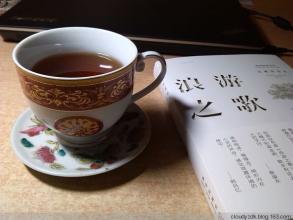Grinding scale of coffee beans in Tanzania introduction to the description of manor flavor by variety treatment
Tanzanian coffee is mostly washed. After picking, coffee farmers will send the coffee fruit to the nearest processing plant for processing. The treatment step of the water washing method is to screen and remove the impurities in the coffee fruit, then remove the coffee pulp and exocarp, and send it into the fermentation tank to remove the pectin layer on the inner pericarp by fermentation. clean and then dry. Coffee in Tanzania is graded in the same way as in Kenya, both according to the size of coffee beans. When screening, let the raw coffee beans pass through the screen with fixed size holes. The larger the number of the screen is, the larger the particles of the raw coffee beans are. The flat beans classified by size are mainly AA+, AA and AB. In addition, PB (peaBerry), which is widely produced in Kenya and Tanzania, also has a set of sieve size standards, which specifically classify the size of round beans.
Tanzania is also often compared with its nearest neighbor Kenya. It is said that the earliest Arabica coffee in Tanzania was introduced by Christians from Kenya and is similar to Kenya in flavor characteristics. With grapefruit aromas and soft and bright acidity. However, because the economic conditions of Tanzania are worse than those of Kenya, the production conditions are poor. Tanzania's quality control is not strict enough, destroying the quality of coffee in many processing links, which can not compete with Kenya, which is famous for its high quality. Although it is similar to the Kenyan flavor, Tanzania as a whole is smoother and softer and belongs to the balanced type. With moderately low acidity and sweetness, dark chocolate finish, moderate mellow thickness. Compared with Kenya, which has a prominent personality, Tanzania is less hierarchical and does not give a very prominent feature after drinking, which makes people less impressive. But on the contrary, its soft and round characteristics are also more pleasing, which is easy to be accepted by people who are new to coffee.
And evenly stimulate the taste buds in the middle and sides of the back of the tongue, feeling a bit like the sour taste of tomato or soda. After moderate or more moderate baking, it has a strong aroma, then grind it into a fine powder, soak it in a pot of boiling water, invite friends to sit around and taste it, and suddenly feel fragrant and full of tongue. its quality is much better than the instant coffee we often drink. Tanzanian coffee has long been loved by Europeans and has joined the ranks of famous products. Europeans give Tanzanian coffee the nickname "coffee gentleman", and Chinese coffee connoisseurs call it the "coffee swordsman" with the mocha of the "King of Coffee" and the "Lady of Coffee".
Coffee is like the simple, frank and enthusiastic national character of Tanzania. Its refreshing acidity and medium mellowness complement sweet citrus and floral aromas. You can experience that different ethnic groups produce different coffee flavors, while the same land is pregnant with coffee trees and people at the same time.

Important Notice :
前街咖啡 FrontStreet Coffee has moved to new addredd:
FrontStreet Coffee Address: 315,Donghua East Road,GuangZhou
Tel:020 38364473
- Prev

Description of Burundian Coffee Bean Flavor description and introduction of Variety treatment method in the region of Grinding scale
Burundi coffee bean flavor description grinding scale production area variety treatment method taste introduction Burundian coffee (Burundian coffee) was introduced by Belgian colonists in 1930. Unfortunately, many of these farms are on the border with war-torn Rwanda, putting pressure on coffee production. Coffee origin in Burundi: Burundian coffee is now available only in Burundi.
- Next

Description of Flavor of Coffee Bean with Coffee droppings introduction to the method of Grinding scale and Regional treatment of Coffee Bean
1. After Indonesians remove the silver-gray film on the appearance of coffee beans, wash them with water, dry them in the sun, and then stir-fry them, they become cat shit coffee beans. 2. Only about 150 grams of coffee beans can be extracted from a jin of civets' feces, which will cause 20% loss in the baking process. Due to the unique raw materials and processing technology, this kind of coffee can be said to be very rare and supplied every year.
Related
- Detailed explanation of Jadeite planting Land in Panamanian Jadeite Manor introduction to the grading system of Jadeite competitive bidding, Red bid, Green bid and Rose Summer
- Story of Coffee planting in Brenka region of Costa Rica Stonehenge Manor anaerobic heavy honey treatment of flavor mouth
- What's on the barrel of Blue Mountain Coffee beans?
- Can American coffee also pull flowers? How to use hot American style to pull out a good-looking pattern?
- Can you make a cold extract with coffee beans? What is the right proportion for cold-extracted coffee formula?
- Indonesian PWN Gold Mandrine Coffee Origin Features Flavor How to Chong? Mandolin coffee is American.
- A brief introduction to the flavor characteristics of Brazilian yellow bourbon coffee beans
- What is the effect of different water quality on the flavor of cold-extracted coffee? What kind of water is best for brewing coffee?
- Why do you think of Rose Summer whenever you mention Panamanian coffee?
- Introduction to the characteristics of authentic blue mountain coffee bean producing areas? What is the CIB Coffee Authority in Jamaica?

